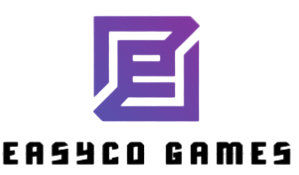Centralized MSP Models Strengthen Healthcare Workforce Governance
Healthcare organizations face increasing pressure to manage complex workforce demands while maintaining compliance, cost control, and quality of care. A centralized Managed Service Provider MSP model has emerged as a strategic solution to strengthen healthcare workforce governance by delivering visibility, consistency, and accountability across staffing operations.
Understanding Centralized MSP Models in Healthcare
A centralized MSP model consolidates workforce management under a single governance framework. Instead of fragmented staffing decisions across departments or facilities, healthcare systems use one centralized structure to oversee contingent labor, permanent placements, credentialing, and vendor relationships.
This model aligns workforce strategy with organizational goals, ensuring that staffing decisions support patient safety, regulatory compliance, and financial sustainability.
Key Governance Challenges in Healthcare Workforce Management
Healthcare workforce governance is uniquely complex due to regulatory requirements, skill shortages, and fluctuating patient volumes. Common challenges include:
- Limited visibility into workforce data across facilities
- Inconsistent credentialing and compliance processes
- Escalating labor costs driven by decentralized staffing
- Vendor proliferation and contract misalignment
- Difficulty forecasting workforce needs
A centralized MSP model directly addresses these pain points through standardized processes and data-driven oversight.
How Centralized MSP Models Improve Governance
Centralized MSP programs strengthen workforce governance by creating a unified operational and compliance structure.
Core governance benefits include:
- Standardized policies: Consistent workforce rules across all departments and locations
- Centralized compliance management: Uniform credentialing, licensing, and regulatory tracking
- Improved transparency: Real-time workforce data and performance metrics
- Cost controls: Rate standardization and reduced agency mark-ups
- Vendor accountability: Streamlined vendor management with performance benchmarking
By centralizing authority, healthcare leaders gain better control over staffing outcomes and risk exposure.
Enhancing Workforce Quality and Patient Safety
Effective governance directly impacts patient care. Centralized MSP models ensure that only properly qualified and credentialed professionals are deployed. Automated checks and standardized onboarding reduce errors and delays, helping facilities respond faster to care demands without compromising quality.
Additionally, centralized oversight supports workforce consistency, which improves clinical collaboration, reduces burnout, and enhances patient satisfaction.
Data-Driven Decision Making and Strategic Planning
One of the most valuable advantages of a centralized MSP model is access to consolidated workforce data. Healthcare organizations can analyze trends related to utilization, spend, performance, and turnover.
This data enables:
- Accurate workforce forecasting
- Proactive staffing strategies
- Identification of cost-saving opportunities
- Alignment of staffing with patient demand patterns
Data-driven governance transforms workforce management from reactive to strategic.
Long-Term Value of Centralized Workforce Governance
As healthcare staffing msp systems continue to expand and integrate services, governance complexity will only increase. Centralized MSP models provide a scalable framework that supports growth while maintaining control.
Long-term organizational benefits include:
- Stronger regulatory compliance posture
- Sustainable labor cost management
- Improved workforce stability
- Greater operational efficiency
Centralized MSP models play a critical role in strengthening healthcare workforce governance. By unifying processes, enhancing transparency, and enabling data-driven decisions, healthcare organizations can better manage workforce challenges while supporting high-quality patient care. As workforce pressures evolve, centralized governance through MSP models is becoming an essential component of modern healthcare strategy.



